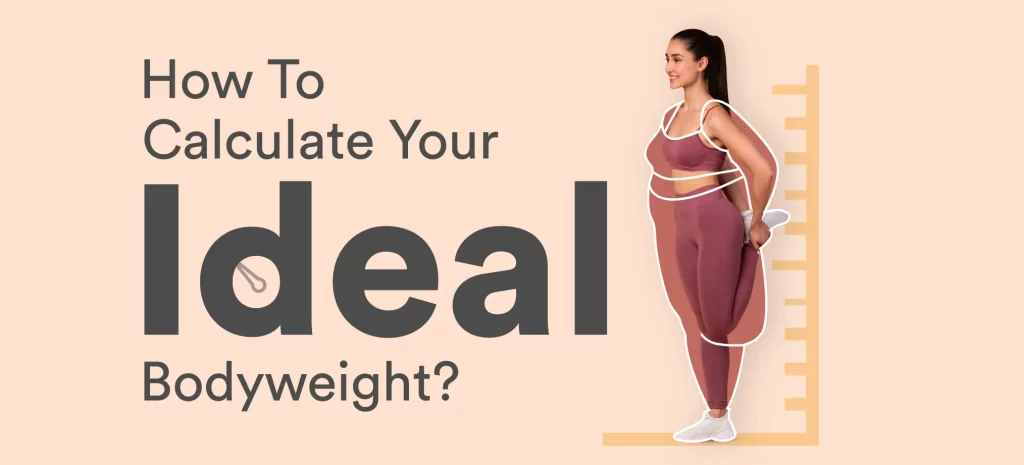Finding the ideal weight for your height and age is a common concern for many people. The answer, however, isn’t as straightforward as a single number. Factors like gender, age, body composition, and overall health all contribute to determining the best weight range for you. Instead of fixating on a single “ideal” number, it’s essential to understand the tools and approaches that can guide you in assessing your health and maintaining a healthy lifestyle.

In this comprehensive guide, we’ll explore various methods and tools for estimating an ideal weight, their limitations, and how to use them effectively.
Understanding Ideal Weight
There is no one-size-fits-all answer to how much you should weigh. Various factors contribute to healthy weight determination:
- Height and age: Your height significantly impacts weight ranges, while age may influence body composition.
- Sex assigned at birth: Men and women have different body compositions, affecting weight distribution.
- Body composition: Muscle mass, fat percentage, and bone density are vital factors in assessing a healthy weight.
Tools to Estimate Ideal Weight
1. Body Mass Index (BMI)
BMI is a widely used tool that relates weight to height. It is calculated by dividing your weight in kilograms by your height in meters squared.
BMI Categories:
- Below 18.5: Underweight
- 18.5–24.9: Normal weight
- 25–29.9: Overweight
- 30 and above: Obesity
Limitations of BMI:
- BMI does not account for muscle mass, fat distribution, or bone density.
- It may misclassify muscular individuals as overweight or obese.
2. Waist-to-Hip Ratio (WHR)
WHR compares the circumference of your waist to that of your hips. It indicates abdominal fat, which is linked to higher health risks.
- Calculation: Divide waist circumference by hip circumference.
- A WHR of 0.9 or below for males and 0.85 or below for females is generally considered healthy.
3. Waist-to-Height Ratio (WtHR)
WtHR measures your waist circumference in relation to your height. A WtHR below 0.5 is generally recommended for maintaining good health.
4. Body Fat Percentage
This method provides insights into body composition by distinguishing fat mass from lean body mass.
- Methods to measure body fat include calipers, dual-energy X-ray absorptiometry (DEXA), and bioelectrical impedance.
Recommended Weight by Height
The following table provides general weight ranges based on height, derived from BMI standards:
| Height | Moderate Weight (BMI 19-24) |
|---|---|
| 5 ft 0 in | 97–123 lbs |
| 5 ft 4 in | 110–140 lbs |
| 5 ft 8 in | 125–158 lbs |
| 6 ft 0 in | 140–177 lbs |
Note: These ranges are general guidelines. Speak with a healthcare provider for personalized advice.
Challenges with Ideal Weight Metrics
While these tools provide useful benchmarks, they also have limitations:
- BMI fails to account for body composition variations, such as high muscle mass.
- WHR and WtHR don’t directly measure overall fat distribution or consider age-related changes.
- Body fat percentage measurements can be affected by inaccuracies in testing equipment.
Maintaining a Healthy Weight
Achieving and maintaining a healthy weight requires a holistic approach:
- Balanced Diet: Focus on nutrient-dense foods like lean proteins, whole grains, fruits, and vegetables.
- Regular Exercise: Incorporate a mix of cardio, strength training, and flexibility exercises.
- Adequate Sleep: Poor sleep can disrupt metabolism and contribute to weight gain.
- Stress Management: Chronic stress can lead to emotional eating and hormonal imbalances.
FAQs About Weight and Health
1. What is the ideal weight for my height?
The ideal weight depends on your height, body composition, and health. Tools like BMI can provide a general guideline, but individual factors should be considered.
2. Does age affect ideal weight?
For adults, BMI calculations do not factor in age. However, age impacts body composition, with muscle mass often decreasing and fat increasing as you age.
3. How do I measure my waist-to-hip ratio?
Measure your waist at its narrowest point and your hips at their widest point. Divide your waist measurement by your hip measurement to calculate WHR.
4. Is BMI accurate for athletes?
BMI may not be accurate for athletes, as it does not differentiate between muscle and fat. Athletes often have a higher BMI due to increased muscle mass.
5. Can I rely solely on weight to assess my health?
No. Weight is just one metric. Consider factors like body composition, diet, activity levels, and medical history for a comprehensive assessment.




